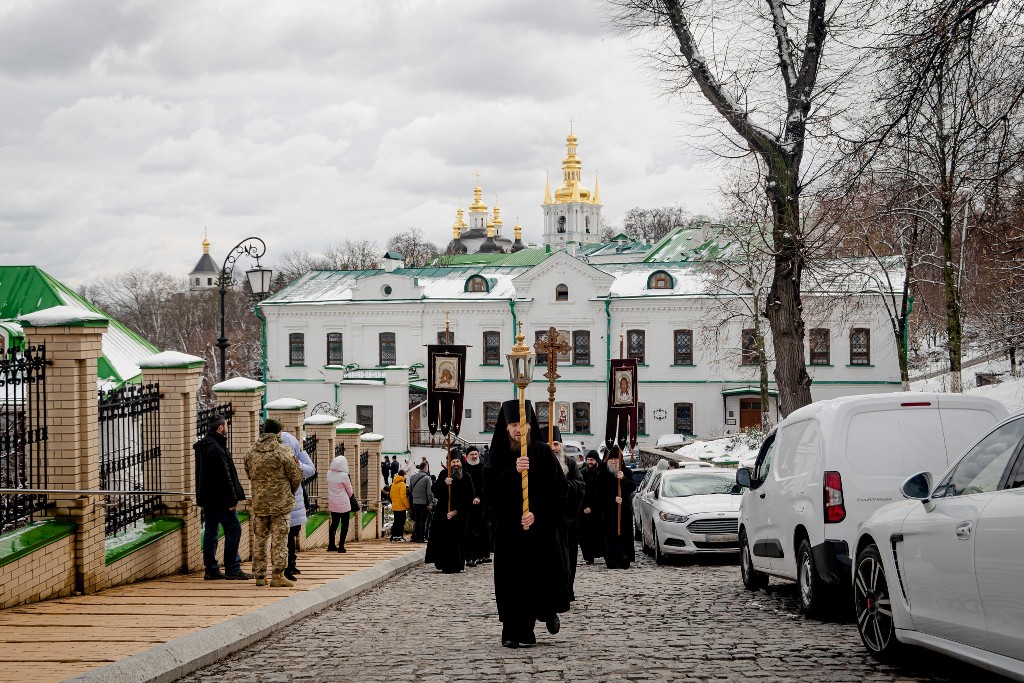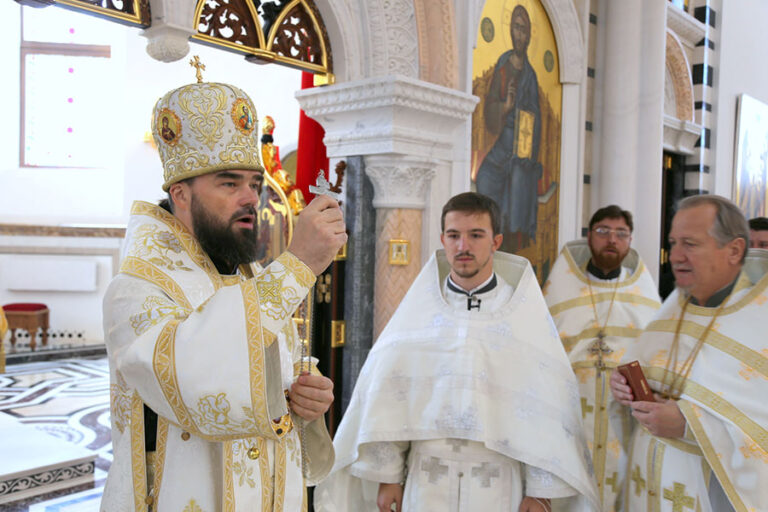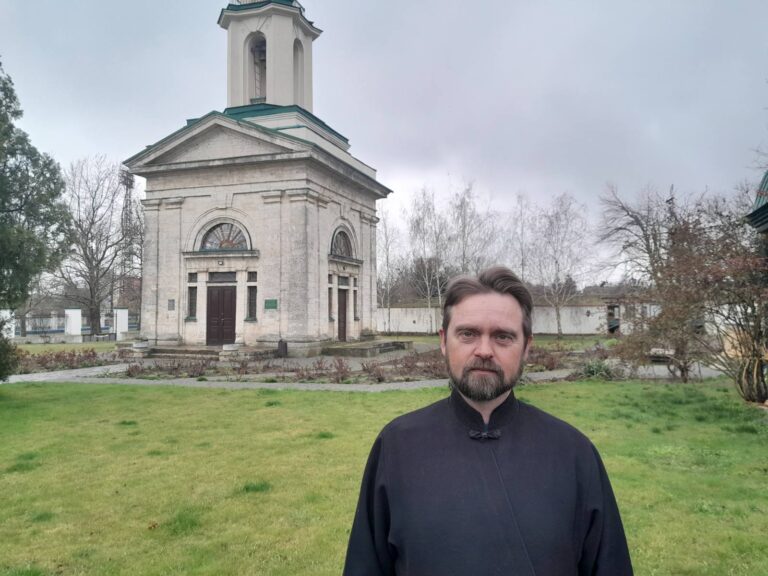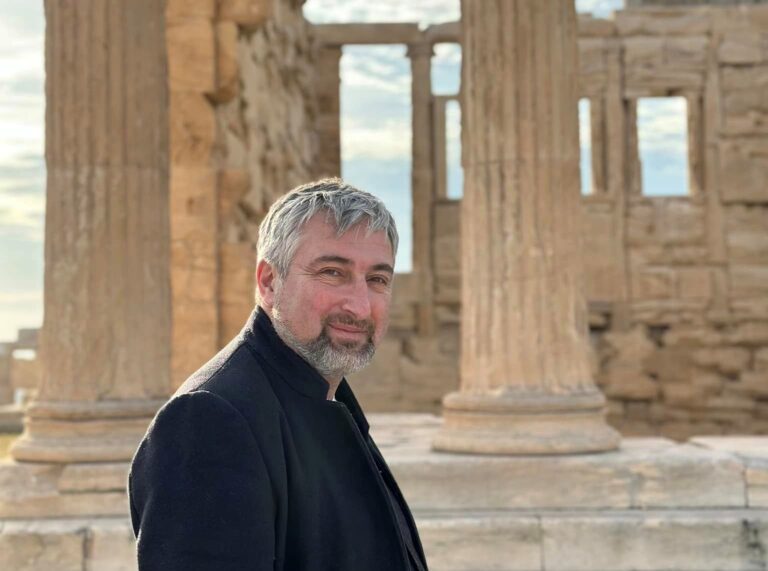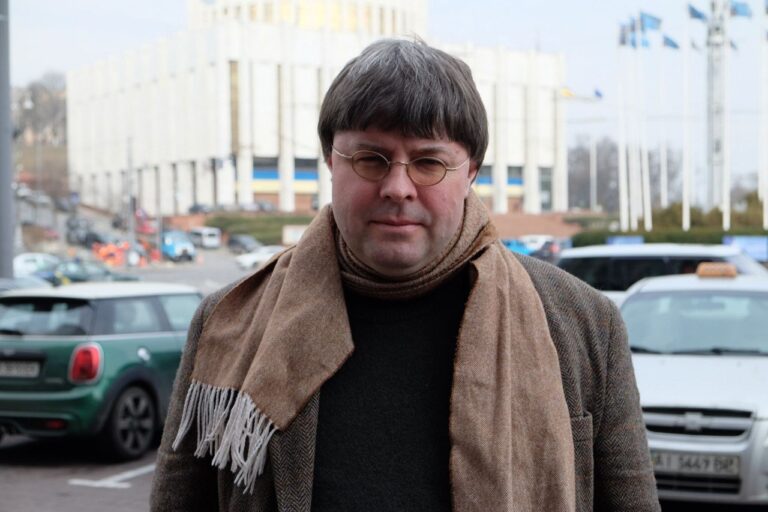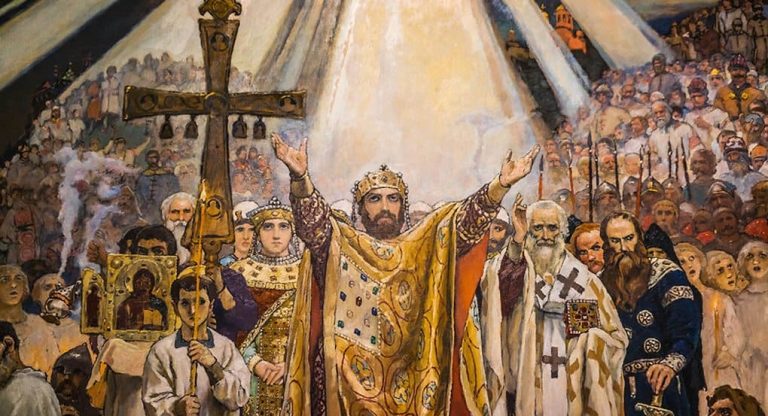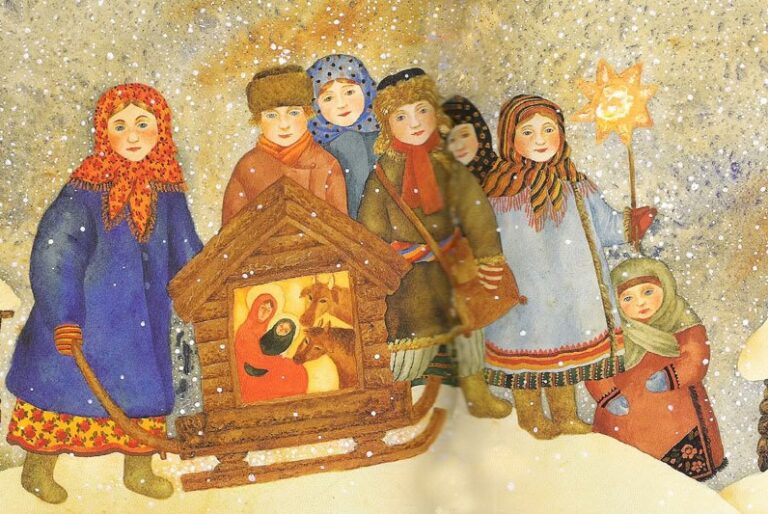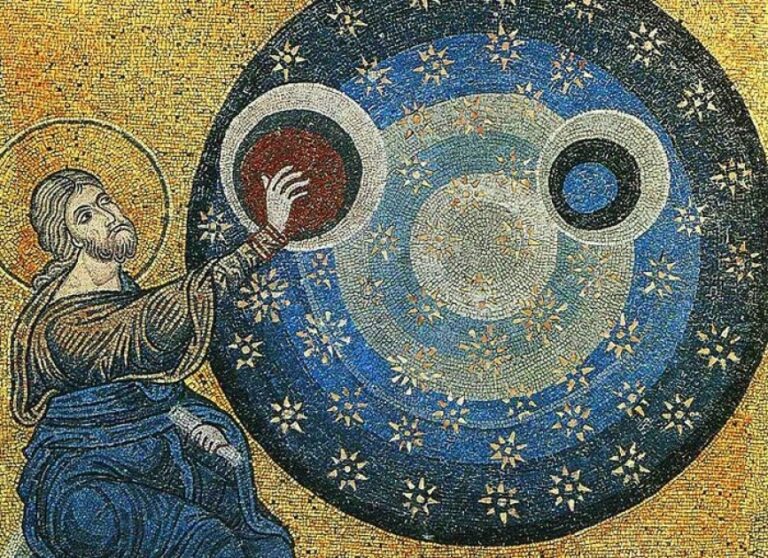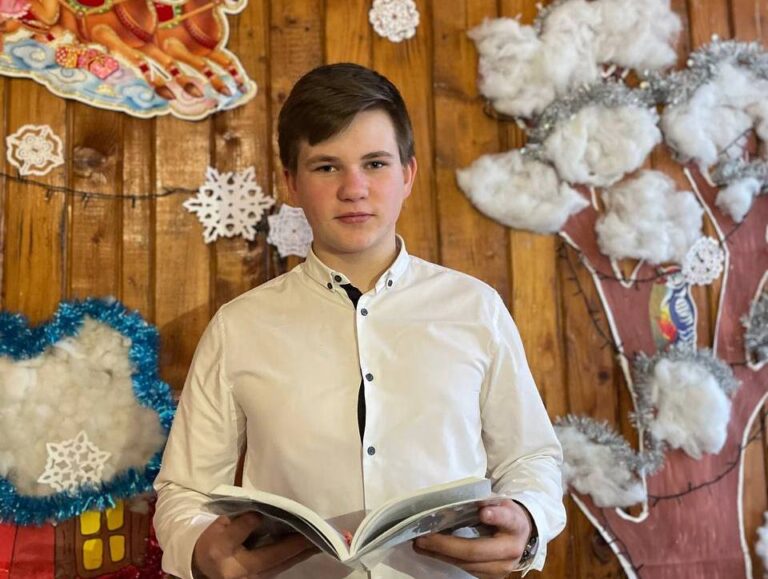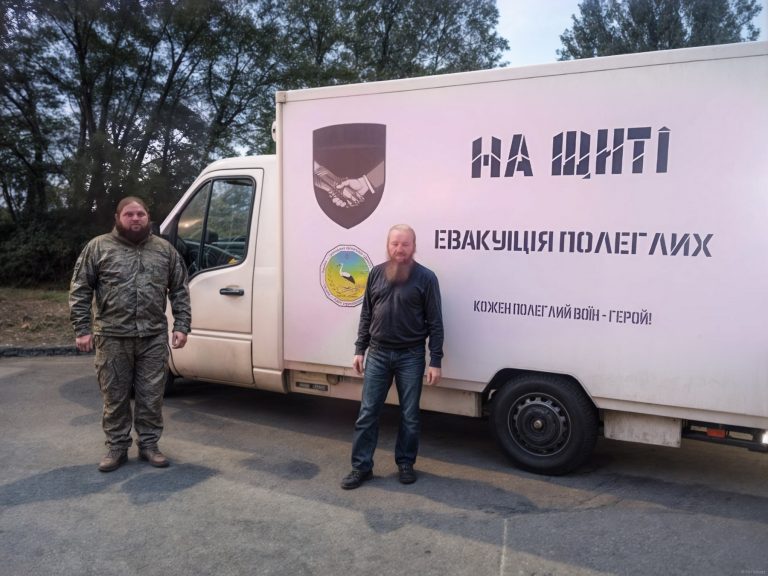We invited some academics from Europe and the USA to assess the legislative initiatives in the religious sphere in Ukraine. We strive to find out what an adequate state policy can be in a country that sees its future in the European Union.
Here is the second text in English.
The answers translated into Ukrainian are available here — Експерт: Документи росії не повинні визначати долю чи назву УПЦ, як і будь-якої організації в Україні
Previous articles in the series:
- Expert №1. Don’t handle a mistaken idea of “unity” / Не піддавайтеся спокусі хибної «єдності»
- Expert №3:The Turkish authorities disputed the right of the Patriarchate of Constantinople to use the concept “Ecumenical” for its self-name / Влада Туреччини оскаржувала право Константинопольського Патріархату називатися Вселенським
- Expert №4: The actions against the UOC have done much more damage to Ukraine than help / Дії проти УПЦ завдали Україні набагато більше шкоди, ніж користі
(It was our conscious decision not to open now the names of the experts. According to our agreement with them, all comments will remain confidential for at least three weeks from the beginning of the publication. After that, each expert is free to decide whether he/she is ready to open his/her name. Why did we do that? Read more here:
Seven questions to international experts about religious freedom in Ukraine)
***
Question no. 1. On the requirement to rename the UOC
We are believers of the UOC, and as citizens of Ukraine, we feel in a certain impasse.
On the one hand, the so-called “law on renaming” no. 2662-VIII, adopted on December 12, 2018, came into force. According to the decision of the Constitutional Court of Ukraine on December 27, 2022, it was recognized as not being contrary to the Constitution of Ukraine.
In 2019, the religious expertise of the Ministry of Culture was published, as well as in 2023 the conclusion of the religious expertise of the SEFC (DESS) – both of them represent the UOC as a component of the Russian Orthodox Church. Both documents are disputed by the UOC in the courts.
From this perspective, we, the faithful of the UOC, are reproached: “Your Church is not renamed in accordance with the current law. Why does the UOC not comply with the law? If you are for the rule of law, follow the law!”
On the other hand, we as members of this religious organization perceive the state’s attempts to indicate to a religious organization what it must be called and what data must be mentioned in its title, as discrimination on the basis of religion and unacceptable humiliation. Because we, as citizens of Ukraine, are legally forced to play by the rules of the aggressor state. It is also obvious that the Russian Orthodox Church will not remove the UOC from its statutory documents, therefore, we will be in one or another way subject to the law on renaming.
What does this situation look like in terms of international standards of religious freedom and human rights? Are there precedents in other democratic states with the rule of law where authorities “bring order” in the religious sphere, setting strict restrictions on the titles of religious organizations?
***
ANSWER.
To my knowledge, there are no comparable cases for such a situation. Religious communities are free to choose their official name in all countries, which adhere to the rules of freedom of religion and belief. There might be rules prohibiting to use a name protected by other juridical persons or limits according to the constitution. However, the right to name your religious organization as you like is part of religious freedom and the freedom of association and the state has no right to interfere in these processes.
Also, from a legal point of view, the decisions of an actor/institution outside of Ukraine regarding an organization within Ukraine cannot be in no way a criterion for judging this organization within Ukraine. Even without a war, but especially under the conditions of this war, there is no impact or effect to the Russian side from outside as well as no reason to trust or take the claims of Russia as legal or trustworthy in any dimension.
Question no. 2. On international mechanisms for challenging the renaming requirement
According to the “law on renaming”, our Church must necessarily indicate in its statutory title the full title of the foreign religious organization of which it is a part, or “mark its place in the structure of a foreign religious organization”.
In the Statute of the Russian Orthodox Church, our Church is called “Ukrainian Orthodox Church”. Therefore, as far as we understand the logic of the current law, the title “Ukrainian Orthodox Church within the Russian Orthodox Church” would correspond to the law.
However, the 2015 ODIHR/OSCE recommendations (“Guidelines on the Legal Personality of Religious or Belief Communities” the OSCE Office for Democratic Institutions and Human Rights) indicate: “In the regime that governs access to legal personality, states should observe their obligations by ensuring that national law leaves it to the religious or belief community itself to decide on its leadership, its internal rules, the substantive content of its beliefs, the structure of the community and methods of appointment of the clergy and its name and other symbols. In particular, the state should refrain from a substantive as opposed to a formal review of the statute and character of a religious organization”.
What legal opportunities do we have as citizens of Ukraine to challenge the law on renaming at the international level, if all possibilities at the level of state legislation are exhausted? Is there none?
***
ANSWER.
Again, the decisions of an actor/institution outside of Ukraine regarding an organization within Ukraine cannot be a criterion for judging this organization within Ukraine. Even without a war, but especially under the conditions of this war, there is no impact or effect to the Russian side from outside as well as no reason to trust or take the claims of Russia as legal or trustworthy in any dimension. Legal decisions have to take into account all available documents of the Ukrainian legal subject and may take witnesses, however, it appears to be absurd to take Russian statements or persons as witnesses in this situation.
Ukraine has ratified the European Convention on Human Rights, accordingly there is always the possibility to apply at the European Human Rights Court if all local options for a legal solution are exhausted.
In more general terms, it seems to be necessary to start a process of theological and legal clarification, how “independence” in such a case should be defined. Obviously, theological, legal and political understandings differ widely and cannot be harmonized in a simple way, especially given the complex ideas of autocephaly, autonomy and communion. Without such a reliable clarification, legal processes seem to be highly ambivalent.
Question no. 3. About Religious Expertise of the State
The website of the human rights organization “Forum-18” states that “the concept of a religious ‘expert examination’ is vague and legally questionable”. There is also a warning that across the post-Soviet region, including in Belarus, occupied Crimea, and Central Asian states “expert analyses” are often used to restrict freedom of religion or belief and other violations of human rights, including a reason for imprisonment.
In your opinion, in what cases and contexts are state religious expertises relevant? Is the expertise of the SEFC/DESS and its Conclusion on the Statute on Management of the UOC an instrument for restricting the religious freedom of the UOC faithful?
***
ANSWER.
According to legal provisions in democratic countries, religious communities – as all communities/NGOs – are subject to the constitution of a country. If there is a well-founded suspicion that the organization violates the constitution, courts are asked to take a legal decision about legal measures. They might consult or involve experts, which usually provide personal expert opinions, which become a part of the legal processes. These experts should obviously be from different academic backgrounds, as neutral as possible and renowned for the specific field. Religious expertise has to reflect the complex (self)understanding of religious communities, concurrent interests should be excluded or made transparent. The legal decision takes the expertise into account without copying it.
Question no. 4. On changing the subordination of religious communities
Along with the constant destruction of hundreds of church buildings of the UOC as a result of the invasion of the Russian Federation into Ukraine, we experience many sad and even tragic situations around the church buildings in the context of the so called “changes of belonging from the UOC to the OCU”.
On the basis of the “law on changes of belonging” no. 2673-VIII of January 17, 2019, many UOC parishes lost access to their church buildings. In part of such church buildings, the OCU has now its worships, some are closed, and meanwhile the parishes of the UOC that had worships in those churches buildings before, have to gather for worships somewhere, including various non-adapted premises or even in the forest.
That means that the state intervened in the procedure for determining the belonging of religious communities and this had serious consequences for many UOC believers.
Repeatedly I heard: “There are no violations of the rights of the UOC believers, there are no problems with changes of belonging”. However, many of us, believers of the UOC, are acutely aware of the reality of these problems, we try to document and challenge them in a legitimate way.
Can we consider that the law no. 2673-VIII on the change of subordination/belonging meets international standards of human rights and religious freedom? Or on the contrary, this is the level of state intervention in the functioning of religious organizations that is inappropriate in a democratic state with the rule of law?
***
ANSWER.
I am not an expert on according laws in detail, but it seems that this law is no violation of the freedom of religion in general terms as far as the idea of transition of individuals and of a community is a right. However, there is a conflict here between individual and parish interests, and within the definition who is part of a parish, and, maybe most important, within the question who owns a church building, of property rights. On the first level, the freedom of religion guarantees individual rights, that means, that individuals are free to chose their religious community and change it whenever they want. If a group of individuals from one community wants to change to another community, they might establish a new community. The 2/3 majority prescribed in the law, is ambivalent because it links a majority to property rights, which might violate the rights of individuals. From my point of view, legal procedures have to focus on the issue of property rights and the definition of who represents a parish. However, these are no questions of freedom of religion, but of other parts of the legal corpus.
As I tried to follow these processes a little bit from afar, I would strongly opt for a better documentation of all of these cases. So far, in public terms, both OCU and UOC representatives claim their rights on a very declarative and populist way, underpinned with rather strange videos, scandals and screaming, while there is no public transparent information about facts and figures. This would help to get a sense of the scale, of the legal measures taken, the legal options which work well, and it would help to counter false balance in the public sphere and propaganda on all sides, not at least on the side of Russian warfare.
Question no. 5. About interaction with the state
The sense of unity that Ukraine lived in the first months of the full-scale invasion of the Russian Federation, for many believers of the UOC gave way to confusion or even despair. After all, we fight the aggression of the Russian Federation together with all others and suffer from it together with all others, but meantime a number of politicians, public servants, media and representatives of the OCU brand us enemies of our own country, try to erase us from its life, up to the prohibition of the activities of UOC organizations.
We strive to protect our rights and truth, but in a way that does not harm our state in conditions of the war.
Meanwhile, reproaches are heard against the UOC faithful: the war is an inappropriate time to appeal against the decisions of state authorities and to protect one’s rights in international institutions.
Where are the reasonable limits for protecting our religious freedom? When should we refuse to argue with our state, so as not to harm it, and when should we defend our rights, because this is important to us, ordinary people? And what would be conditions in a democratic state with rule of law to ban the activities of a religious organization?
***
ANSWER.
To ban a religious organization is possible only, when this organization violates as a whole the constitution of a country. This is, from my humble point of view, not the case for the UOC in general and most probably for all parishes. Beyond a ban, there are several measures to limit the scope of activities if the violation of specific laws is evident. Most probably, this will always target individuals and not the community as a whole. Again, religious freedom is an individual right, and the question to define here would be, where the limitation of the activities of the UOC touches upon the individual right of the believer not only to pray at home but to communicate publicly in his/her religious community which consists of priests and bishops and other structures.
I see two levels of possible activities for the “normal believer” in order to impact the current situation: On a first level, you have the right and possibility to pressure your own hierarchy in order to position the church as a church in this war. Obviously, there is no problem with what believers believe, but with the hierarchy of the church, which refuses to take decisive steps in order to distance itself from the aggressor church and state. The inner-church communication is a tremendous problem in Orthodox churches, which has lesser impact in peaceful times but plays out destructively now under the conditions of war. Therefore, believers have to connect, to form a synodal community of faithful, to stop copying the usual way of denouncing and distrusting the other but to join their energy in order to make a meaningful dialogue with the hierarchy.
On the other level, believers and parishes are part of the Ukrainian civil society and as such have the right and power to connect and to be in a dialogue – even without the hierarchical representatives.
Question no. 6. On trends in the religious life of Ukraine
What dangerous or encouraging trends in the religious life of Ukraine do you see?
***
ANSWER.
From the pessimistic perspective, I see a growing polarization in the religious community where the openness for each other would be the most required way for building resilience and support in times of war. This is destructive both in countering Russian propaganda and preparing for an active participation in civil society in Ukraine. By supporting mutual hate speech and distrust, the hierarchs of both Orthodox churches lose the opportunity to be a constructive part of sustainable and just peace in Ukraine. Also, in the current situation a new politization of religious questions is obvious. Some church representatives are again looking for a close connection to the state, which is worrying for a democratic development.
On the positive side, I see a tendency of self-empowerment of the faithful, both laity and parish priests with the aim to support the society in its fight for freedom and dignity. This tendency might become the hope for a modern Christian society without blind obedience and fundamentalism. It will be important to support a broader religious and theological education and a broad discourse about Christian social ethics in a modern society.
Concerning the sphere of religious law, I became cautiously optimistic during the last year, because after a very problematic rush for a ban of the UOC and pressure on the church, processes slowed down, which shows some kind of awareness of the problematic impulses. It may be part of a democratic development in times of war, which is a highly challenging process.
Question no. 7. About expert advice to the Ukrainian authorities
If there would be an opportunity to advise the President, the Parliament, the Government of Ukraine on the ways relating the UOC in compliance with international regulatory standards, what would you advise to do in the sphere of state policy in conditions of the war?
***
ANSWER.
I would recommend to strictly keep with the laws, which already exist, against propaganda, collaboration and treason, in order to punish individuals in the church. These processes have to be absolutely fair, transparent and unequivocal. I would recommend to completely abstain from using a rhetoric of generalization against the UOC as Russian, propaganda etc. And I would recommend to strictly abstain from interfering in religious questions such as language, holidays, veneration of saints, communication with other churches, canonical rules etc.
As the state has an interest in the consolidation of the religious situation, I would recommend to use all its resources to enable a dialogue between the churches and within the churches, a fair participation of laity and a strict inclusion of all churches and religious communities in all meetings concerning religious questions.
Finally, in terms of more general state strategies, I would recommend to give constructive and positive developments in line with the traditional religious plurality and freedom of Ukraine a broad public visibility in contrast of blaming and shaming destructive developments in public.



